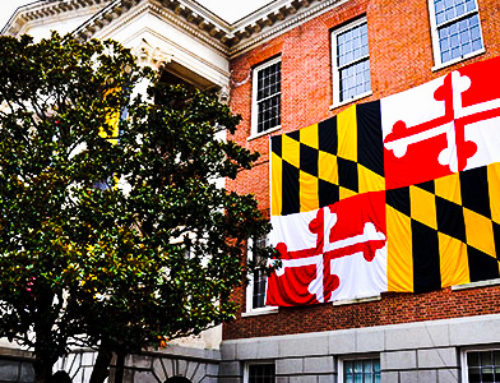View by Topic
Recent Articles
-
Appeals Court Finds Climate Change is Not JusticiableSaturday, May 11th, 2024
-
Colorado Building Energy Performance Standards (BEPS) Laws ChallengedSaturday, May 4th, 2024
-
New Environmental Laws from the 2024 Maryland Legislative SessionSaturday, April 27th, 2024
-
EPA Designates PFOA and PFOS as Hazardous Substances under Superfund LawSaturday, April 20th, 2024
-
Federal Government Finalizes New Efficiency Standards for LightbulbsSaturday, April 13th, 2024
View by Month/Year
“Green Building Law Update” Headlines
Recent Articles & News from
Stuart Kaplow’s blog
at GreenBuildingLawUpdate.com
- Constitutional Rights vs. Climate Change: Inside the Juliana Case Dismissal May 12, 2024
- Does Federal EPCA Trump Colorado Building Energy Performance Standards (BEPS)? May 5, 2024
- New Environmental Laws in Maryland: 2024 Brings Opportunities for Businesses April 28, 2024
- EPA Takes Action: PFOA and PFOS Now Hazardous Substances Under Superfund Law April 21, 2024
Subscribe to the Green Building Law Update!
Stuart Kaplow brings his expertise and extensive experience to the table with his unique digital publication, "Green Building Law Update". Subscribers receive regular updates to keep them informed about important issues surrounding Environmental Law, Green Building & Real Estate Law, as well as the emerging demand for Environmental Social Governance (ESG).
Get fresh content through the lense of Stuart Kaplow's cutting-edge expertise, innovative commentary and insider perspective. Don't miss another issue! Subscribe below.
Security Cameras Mandated at Shopping Centers in Baltimore County
At a time when Baltimore County citizens identify crime as the most serious issue impacting their community and in response to a murder in a parking garage of a local shopping mall, the County has become the first local government in the nation to require shopping center owners to equip parking areas with security cameras.
On March 21, 2005, the Baltimore County Council approved Bill 21-05 which requires shopping center owners to equip public parking areas within their control with surveillance devices.
A shopping center is defined in the legislation as a group of fifteen or more commercial retail units that: (1) are designed as a single commercial group; (2) are under common ownership or control; (3) are connected by party walls, partitions, canopies or other structural members to form one continuous structure, or, if located in separate buildings, are connected by walkways designed to facilitate customer interchange between the uses; and (4) share a common parking area.
The owner, manager or operator of a shopping center is required, within 18 months of April 4, 2005, to install and maintain surveillance devices to provide coverage of at least 75% of the square footage of the parking areas that are owned, leased or operated by the center for use of the public. The devices must provide passive recorded video surveillance during operating hours of the center. Copies of the videos are to be maintained for at least 3 days and upon request made available to the Police Department.
If requested, the Police Department will assist a shopping center in performing a security study or reviewing a security plan. In addition, the bill requires the Police Department to review the crime data and the existing security measures at centers covered by the bill and make recommendations to the County Council on steps to be taken to reduce crime at these centers. Given that the Police Department pointed out in the debate that there were 96 bank robberies in the County last year, and every one of those banks had security cameras, observers anticipate an interesting report on the efficacy of passive security cameras in reducing crime. The recommendations are due by September 22, 2005.
A shopping center may post signs to advise the public that parking areas are subject to surveillance.
Many shopping center leases will permit the cost of complying with this law to be passed on to tenants. And to help defray the cost of acquiring and installing surveillance equipment, the bill authorizes a shopping center owner to apply for a County loan or grant or guarantee under the County’s Economic Development Revolving Financing Fund.
Significantly, a violation of any requirement of the law subjects an offender to a civil penalty of $500 per day.
It may be legitimate to question whether there is a rational basis in mandating security cameras at a very limited number of retail properties in response to crime, in lieu of relaxing existing restrictions on outdoor lighting throughout the jurisdiction or other more broadly impacting enactments, but there is no doubt that the County Council responded to the Police Department’s failure to address the public’s fear of crime.









